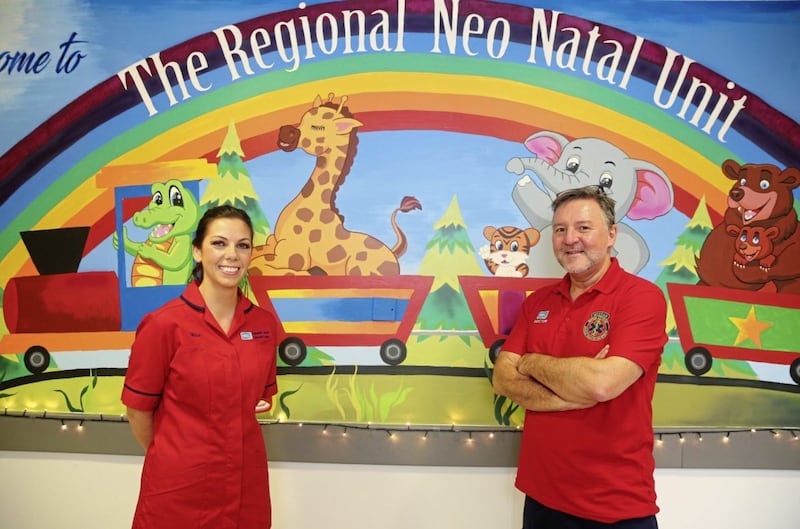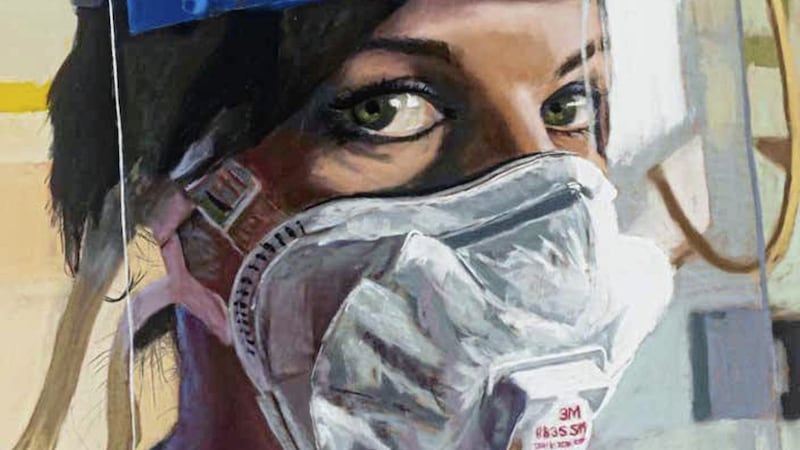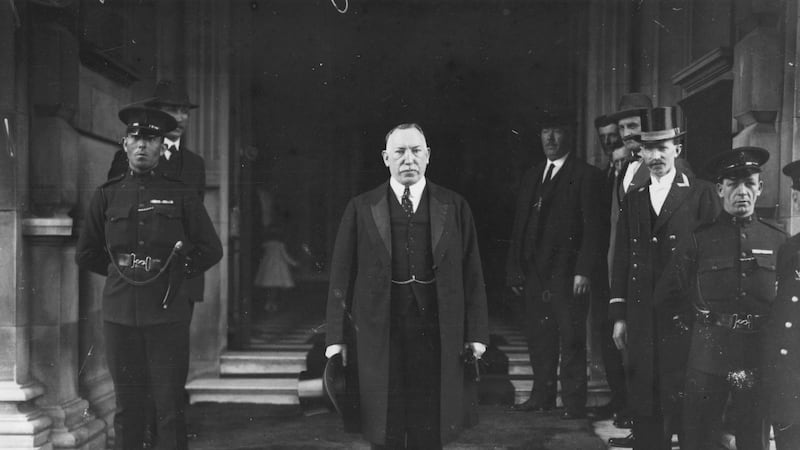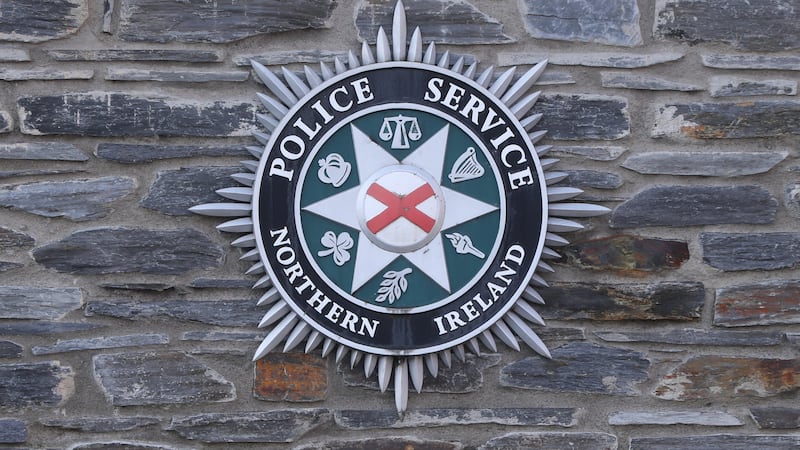CARING for some of the sickest and most premature babies in Northern Ireland for the past 20 years, painting has become "therapy" for one leading paediatrician.
And when the coronavirus pandemic hit, consultant Dr David Sweet decided he wanted to capture the "Covid era in colour" at the north's main neonatal unit at Belfast's Royal Victoria Hospital.
Within minutes of spotting a photograph of a senior nurse head-to-toe in PPE, the talented pastel artist had found his inspiration.
The result is a striking painting of nurse sister Gemma Carter peering from a home-made visor - when PPE was in short supply - and is the show-stealer at a newly-reopened exhibition at the Ulster Museum after lockdown had forced it online.

Dr Sweet's 'Covid Warrior' is one of 190 works selected from almost 1,300 entrants for this year's Royal Ulster Academy (RUA) annual exhibition, regarded as a jewel in the crown of art shows.
For the medic, whose boyhood love for painting was re-ignited when his wife bought him night classes with an east Belfast artist in 2008, getting his work "over the line" in the prestigious exhibition is "really pleasing" - especially as it hangs beside one by his former teacher.
"I’ve been churning out paintings for the last decade, I’ve about 350 paintings now. I’ve just really enjoyed the creativity, it’s a nice way of unwinding from my day job," the medic told The Irish News.
"In March, when the first lockdown happened, everyone was trying to train in work and learn how to protect themselves and patients. There was a lot of time spent with us in terms of how we should put PPE on and take it off without contaminating each other.
"There was an episode when one of the sisters in the neonatal unit took a selfie because everyone was in this new era. We didn’t normally wear masks in the unit. I did a charcoal picture of the selfie and thought it looked a cracker.
"I thought it would be really nice to capture something in colour for the Covid era. I asked Gemma if she would mind modelling.
"The interesting thing is that one of the neonatologists' husbands made the visor. He ran a sound engineering business that did 3-D printing. Because there were shortages of those visors at the time he started making those, and came to us.
"The mask she has one is one of the full proper PPE masks from the Sars pandemic. At the time we didn’t have the proper kit, so we were practising with this old kit.
"There was a big movement during the first wave for artists to paint NHS workers and the 'Covid Warrior' title suited - no-one knew at the start what was going to happen."
With capacity for 28 cots in the Belfast unit, Dr Sweet is one of only eight specialist neonatologist consultants and is regularly on-call.
While their team has dealt with a small number of Covid-positive mothers, no babies became seriously unwell.
"We've been fortunate in the unit. We’ve had no serious problems with Covid in my sphere which is good because we didn't know if we were going to have lots of babies getting unwell. Those that have it tend not to get that sick," he said.
"There was a period when visiting stopped… but now we do allow parents to come in. We try our best to keep it as nice as we can. It is more sterile now, it was always very nurturing."
Each of Dr Sweet's paintings takes about 20 hours and he produces one every fortnight.
"One of the reasons I use pastels is that whenever I’m on call I can paint and it doesn’t dry. So I can just lean down, wash my hands and go. If I’m called to an emergency it means I don’t have to rub a palette with wet paint on it, pigment sticks with pastel," he said.
"You can put your brush down and come back to them three days later and just pick up where you left off."
As the second Covid wave continues to overwhelm hospitals and many staff are forced to self-isolate, Dr Sweet says his love affair with painting often allows him to "escape" the pressures of his day job.
"When you paint you immediately get into the moment of now, you leave behind what’s happened during the day and focus on what's in front of you.
"It’s a nice way of de-stressing. You’re just thinking about your next thing on the page, it’s like therapy I guess."
:: The 139th RUA exhibition features 250 pieces of art and free tickets can be booked through the Ulster Museum. It can also be viewed virtually at royalulsteracademy.org.



